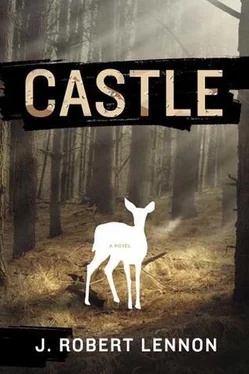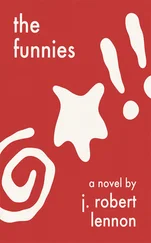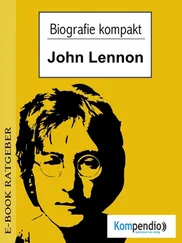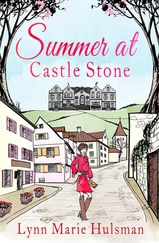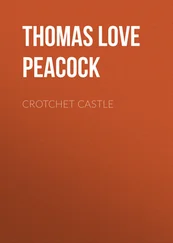“I took your car out for a spin,” Hank said, as he helped me from the back seat of the pickup. His hand was large and rough in mine, and guided me with easy, sure movements onto the surface of the lot. “It’s not good to leave it sit for too long.”
“That’s very kind of you,” I said, shaking his hand.
“Little Brother,” my sister cried, throwing her arms around my neck, “I’m glad you’re all right.”
“Me too,” I mumbled, unaccustomed to this kind of demonstrative behavior. I patted her back awkwardly before she let me go.
“We’ll be up tomorrow to check on you,” she said. “Be careful, okay? Don’t overexert yourself.”
“No, of course not.”
“Just relax and heal up. Call us if you need anything. We got you some groceries, they’re in the fridge.”
I didn’t know what to say. “Thank you” was all I could manage.
“When you’re ready, I’ll come over and we’ll talk all this through,” she went on. “We’ll figure it all out together, all right?”
And though I wasn’t entirely sure what she meant, I said, “Yes. That would be good.”
We said our goodbyes, and Jill and Hank got into the pickup and disappeared over the crest of the hill. It was late afternoon; the weather had turned warm. The sun was on my face, and in the windows of the house. I took a deep breath, the first one I’d taken in weeks, and then I went inside.
Nothing had changed, aside from the accumulation, upon the floorboards and furniture, of a thin layer of pollen from the trees outside. I picked up my meager mail — a bank statement, an advertising circular from the hardware store, a power bill — and carried it into the kitchen, where I dropped it onto the table beside the still-unopened official letter I had received some weeks before. I set a pot of coffee on to brew, and as it did so, I wiped down the counters, opened the refrigerator and examined the food and drink my sister had bought, and parted the kitchen window curtains. After a moment, I opened the window itself. Fresh air and light were now pouring into the room.
The coffee maker burbling behind me, I sat down at the table and opened the mail. My bank account appeared to be in fine shape; I set the statement aside. The hardware store, in preparation for summer, had patio furniture and charcoal grills on sale — perhaps someday I would build a patio outside the house, and put a grill on it, and enjoy the brief upstate summers in comfort and style. My power bill was low, owing to my absence from the house; I took out my checkbook, wrote out a check for the full amount, and sealed it up in the envelope provided.
All that was left was the official-looking letter. My name and address were printed in the center, and the upper-left-hand corner bore a familiar seal. I turned the letter over in my hands, slipped my finger under the flap, and considered, for a moment, opening it. Instead I stood up and tucked it in beside Jill’s greeting card, underneath the magnet on the fridge. Then I went outside to attach my power bill payment to the mailbox.
Once I was back inside, I climbed, with some effort, the stairs, and reached into the back of my closet for my old green duffel. I packed it, then brought it down and set it beside the front door.
With that accomplished, I poured myself a mug of fresh coffee and carried it out to the porch to meet the day.
Two weeks later, I was working in the yard, planting an apple tree. It seemed a good, simple, American thing to do. Jill had been by an hour before, had seen the tree in the yard, its root ball wrapped in burlap, and informed me that I needed another, if I wanted any apples to grow. She told me the trees had to be pollinated by bees, and that one alone wouldn’t do.
I hadn’t known this. Indeed, there was a lot I didn’t know about civilian life, that someday I would have to learn, if I wanted to live the way ordinary Americans did. This had been a prominent theme in my thoughts during the weeks since my discharge from the hospital — was this what I wanted, a normal American life? The kind of life that I had spent my career ostensibly fighting to protect?
The truth was, I didn’t know if this was something I should want, or could achieve. For all my talents and accomplishments, I understood now that my experience was actually quite narrow — I remained unfamiliar with the customs and obligations of ordinary society. I was, in the end, a misfit — and should I want to assimilate myself to the world, I would have to undertake it as I would any project. I would gather intelligence, I would build a structure: something I could live in, something that would make me feel safe.
But these were thoughts for the future. This day had other plans for me.
I heard gravel crunch on the drive, and I looked up from my work, expecting to find Jill’s familiar pickup. The vehicle I saw, however, was the twin of my own — a dark SUV, this one with deeply tinted windows and military plates. A driver was visible, outlined behind the windshield, and I raised a hand in greeting. He did not get out. Instead, he simply nodded. I nodded back, and laid my shovel on the ground. The planting was finished — the tree stood straight and true in the June sun.
Perhaps Jill could come and plant another, so that next spring, there would be fruit. In any event, I would probably not be here to enjoy it.
It is hard to convey the depth of relief I felt at this moment. For, although my experiences in Iraq would doubtless haunt me for many years to come, the army itself remained the same institution that had sustained me for more than twenty years, and once valued me for the skills I had worked so hard to perfect. There in the sunny yard, I began to experience a profound and uncharacteristic upwelling of emotion, akin to that one might feel if a former lover, still longed for, came to her senses and returned in tears to beg forgiveness.
I thought, with some regret, of the conversations Jill and I might have had, catching one another up on our lives. Now all that would have to wait. Everything would have to wait, except for the war, which continued in defiance of everyone’s expectations.
I removed my gardening gloves and tossed them onto the ground beside the shovel before turning, going back indoors, and picking up my duffel bag. I took a last look around the house, pleased at the work I had done, pleased at everything I had learned since my return to Gerrysburg.
Then I stepped outside, pulled the door shut behind me, and set off on my mission.
My thanks to Rhian Ellis, Bob Turgeon, Brian Hall, Jim Rutman, Ethan Nosowsky. The children’s book Loesch reads is The Nine Questions, by Edward Fenton. Logistics Support Area Anaconda is a real American military base near Balad, Iraq, but Camp Alastor and its inhabitants are my invention.
J. ROBERT LENNONis the author of five previous novels, including Mailman and The Light of Falling Stars, and the story collection Pieces for the Left Hand: 100 Anecdotes. His stories have appeared in the Paris Review, Granta, Harper’s, Playboy, and the New Yorker. He lives in Ithaca, New York, with his wife and two sons, and teaches writing at Cornell University.
